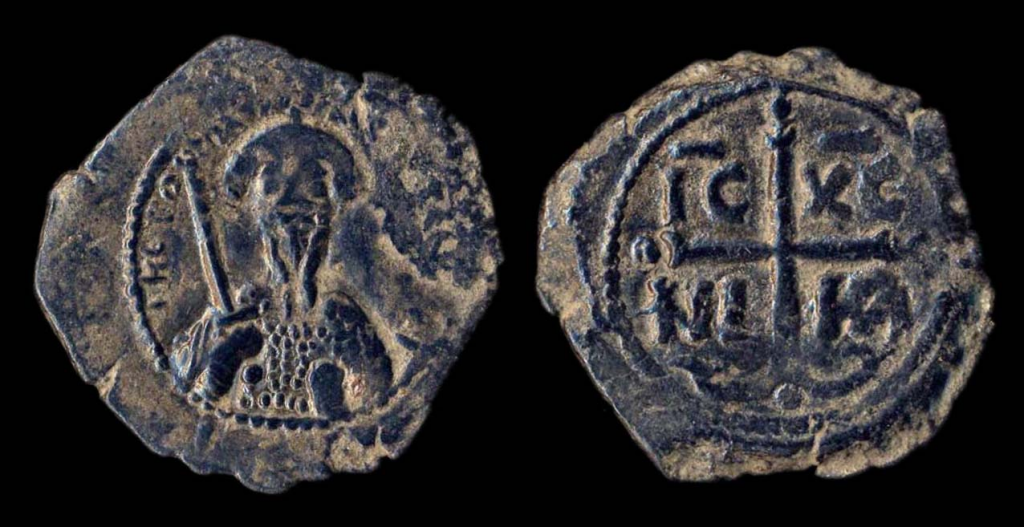In the biting cold of early 1105, Tancred, a battle-hardened veteran of the First Crusade, had every reason to despair. His once-proud Principality of Antioch was crumbling. Six months prior, the Frankish army had suffered a humiliating defeat at the hands of Muslim forces, shattering their reputation of invincibility.
To make matters worse, his famous uncle, Bohemond of Taranto—the so-called Prince of Antioch—had abandoned the Levant, taking the city’s treasury with him as he sailed westward. With rebellion and invasion closing in from all sides, the very survival of the principality fell squarely on Tancred’s shoulders.

This was not the first time he had faced such a crisis. He had witnessed firsthand the horrors of the Siege of Antioch in 1098, where starvation and disease had ravaged the Crusader army before their eventual triumph. Now, the land they had won at such great cost seemed destined to slip from their grasp.
The Burden of Leadership
Tancred had assumed the regency of Antioch in 1101 after Bohemond was captured by the Danishmends. Over the next two years, he had proven himself a capable ruler, stabilizing the principality and expanding its borders. He crushed Armenian resistance in Cilicia and seized the vital port of Latakia from the Byzantines. However, when Bohemond was ransomed in 1103, Tancred was forced to relinquish his conquests and step aside.
In 1104, Bohemond, freshly freed and eager to reclaim his dominance, allied with Baldwin II of Edessa to push further into northern Syria. However, their ambitions met disaster at the Battle of Harran. The Edessan forces, overconfident and reckless, charged ahead and were brutally crushed. Baldwin II was captured, and thousands of Frankish troops were either killed or taken prisoner.
The psychological impact of Harran was devastating. For the first time, the local Muslim and Byzantine powers realized that the Latins were not invincible. In the chaos that followed, Byzantine forces swiftly retook Cilicia and Latakia, while rebellious cities in the region expelled their Latin garrisons. The once-mighty Principality of Antioch was now a shadow of its former self.
Realizing the precariousness of his situation, Bohemond made a shocking decision: he would leave the Levant once more, claiming he needed to recruit reinforcements from Europe. In reality, he had grander ambitions—he planned to launch a campaign against the Byzantine Empire itself. Before departing, he shamelessly drained Antioch’s remaining treasury, leaving Tancred with little more than an empty coffer and a desperate fight for survival.
A Prince’s Gamble
As the regent of a crumbling state, Tancred faced what seemed like an inevitable collapse. But instead of surrendering to despair, he rallied. He imposed emergency taxes, hired new mercenaries, and called upon every available Christian man in northern Syria to join his army.

By early spring 1105, he had mustered a force of 1,000 knights and 9,000 infantry. It was not enough to reclaim all that had been lost, but it was enough to take a bold risk.
Tancred set his sights on Artah, a strategically vital town northeast of Antioch. Its loss had exposed the city to attack, and reclaiming it would be a significant victory. However, this would require facing Ridwan of Aleppo, whose army reportedly outnumbered Tancred’s forces three to one.
Knowing he could not win in a head-on battle, Tancred devised a cunning strategy. He led his forces toward Artah, provoking Ridwan into giving chase. As the Muslim army pursued, Tancred feigned retreat, drawing them into a rocky, uneven terrain where their cavalry would struggle to maneuver.
On April 20, 1105, as Ridwan’s troops stumbled through the rough landscape, Tancred’s forces turned and struck. The Muslim cavalry, caught off guard, found themselves unable to flee effectively. Frankish lances tore into their ranks, cutting down warriors who had no room to escape. Panic spread, and soon Ridwan himself abandoned the battlefield, leaving his army in complete disarray.
The Turning Point
Tancred’s victory at Artah was more than just a battlefield success—it was a moment of redemption. The Franks had avenged their loss at Harran and restored their shaken confidence. Over the next few years, Tancred would continue his resurgence, reclaiming Cilicia, Latakia, and securing Antioch’s borders. By 1110, he had transformed his uncle’s failed principality into a stable and formidable power.
Meanwhile, Bohemond’s European adventure ended in utter humiliation. His much-hyped crusade against Byzantium collapsed, and he died in shame in 1111, never returning to the Levant.
With Bohemond gone, Tancred no longer ruled as regent—he was now the undisputed Prince of Antioch. His leadership, resilience, and tactical brilliance had saved the principality from oblivion, ensuring that the Latin presence in northern Syria would endure for decades to come.

No comments yet.